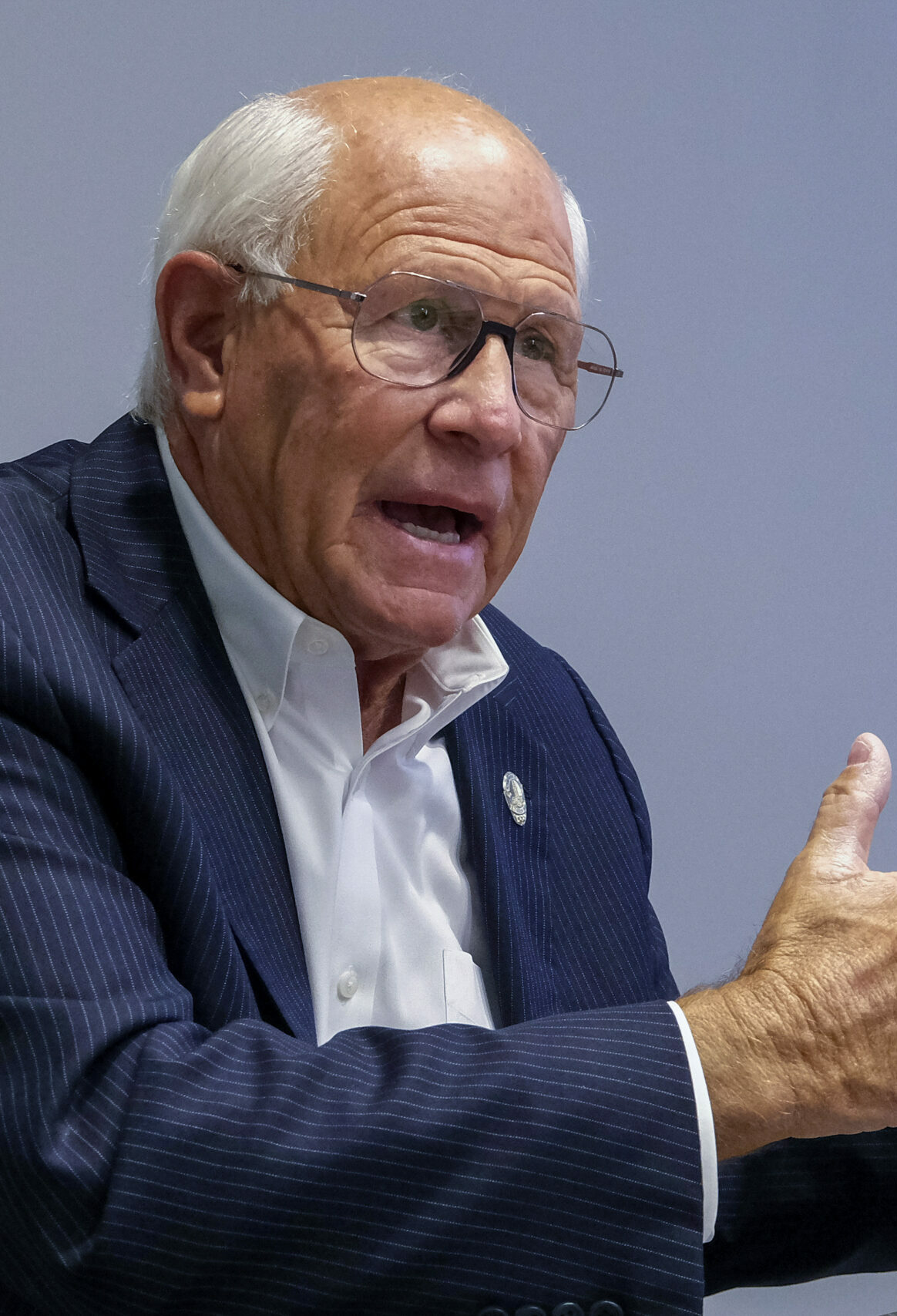The Los Angeles Police Department is having such a difficult time attracting recruits that leaders plan to seek help from the business community.
Specifically, L.A.’s landlords will be asked to voluntarily subsidize apartments for police recruits for two years. That way, those incoming officers can afford to live in the city as they go through their six-month training and then get rooted in their career.
“A housing initiative is what we’re forming,” Police Chief Michel Moore said.
A second part of the plan calls for seeking donations from the business community, individuals, foundations and others. The money would go into a kind of housing trust which would help pay rent for incoming cops.
The initiative is still taking shape, and details are not worked out.
Steve Soboroff, a longtime business and civic leader who has been a police commissioner for nine years, came up with the idea for the subsidized housing plan. “I like to take complicated problems and make them simple. And this is one that jumped at me.”
The central problem is that the police department is seeing the roster of sworn officers dwindle alarmingly. In the last fiscal year, the department lost 633 officers but was able to hire only 75, Moore said. The department stood at 10,100 officers before the coronavirus pandemic but is down to 9,400 now.


“We’re at staffing levels today that go back to 2005,” he said.
In the current fiscal year, which ends June 30, the department needs to hire 740 officers – the highest number ever – but Moore said at best 500 will be hired.
Housing math
There are several reasons for the fall in applicants. One notable example is the “defund the police” movement, which has demoralized police officers across the country. But in Los Angeles, the cost of housing is among the biggest deterrents, especially for those migrating from other areas of the country.
“There are a million reasons why people want to come to L.A. and there are five or six, maybe, that they don’t,” said Soboroff. “But this hurdle, the cost of housing, is a major shock to people.” For many, it is the No.1 reason they do not apply to the local police department, he said.
Soboroff figures the math this way: Recruits are paid $71,000 year, beginning when they start training at the Los Angeles Police Academy. If each one paid rent equal to about 40 percent of his or her after-tax income, that would come to about $1,500 a month. But rents are far higher in Los Angeles, so he wants to landlords to step up and subsidize rent above that amount, which may come to roughly $1,000 a month for each unit.
“What landlord wouldn’t want a cop living in their complex?” Soboroff asked. Soboroff, who in the 2000s headed up the development of the immense Playa Vista community, said that it was a benefit in that neighborhood to subsidize homes for police, nurses and teachers.
Moore and Soboroff said there’s a strategic reason for having the subsidy last for two years. It’s because it would give the young officers time to get rooted and make Los Angeles their home. Otherwise, they may get training – which is expensive – and then move to a different city.
Moore said many young officers, in the absence of a subsidized unit, would live outside the city where rents are lower and commute in. “And then they’re going to be attracted to work in departments outside the city after we spend $100,000 (to train them).”
Landlords on board?
How many apartment owners would be able to help and take a financial haircut at this moment is an open question.
Many landlords continue to take blows from Los Angeles County’s eviction moratorium, which has resulted in a number of tenants not paying rent at all and the landlords unable to evict them. The moratorium recently was extended into next year for some.
Soboroff said he has just started reaching out to some apartment owners to gauge whether they may participate. Geoffrey Palmer, a big L.A. apartment developer, is interested in helping, he said.
A spokesman for Palmer later confirmed that he is interested.
The other part of the initiative would call for donors – whether businesses, individuals, foundations or others – to contribute to a fund that would pay a portion of young officers’ apartments for two years. Such a fund has not been set up, but it could be overseen by the Los Angeles Police Foundation, for example.
In that scenario, a landlord would get two checks that would total the normal amount of rent or perhaps a discount from it, said Soboroff. “The landlord will get a check from the cop, and the landlord’s going to get a check from the Los Angeles Police Foundation.”
In all – the subsidized rents and the donations – would be valued at $33 million for a two-year run of the program, they said.
No website or phone number has yet been set up to take inquiries from those who may want to help, they said. But Soboroff said those who are interested could send him an email at [email protected].
“I believe in the heart of this community,” Soboroff said. “I believe that there are a whole lot of people who have a whole lot of money that really are looking for things that can really help.”

